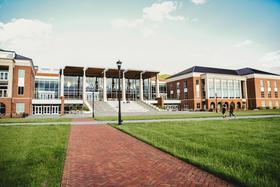For many high school students, attending college is the next logical step after graduation. According to the U.S. Department of Education, there are more than 2,300 institutions that grant 4-year degrees and around 1,500 community colleges. With so many options out there, making a decision can be quite difficult. If you want to make sure that you end up going to the right school, take the time to think about your future before you start shopping for schools then consider each option in depth, focusing on three categories in particular – academics, student life, and finances.
Before You Start Looking
Though many students look at it this way, college is not just something you do after high school – it is a wonderful opportunity to shape your future and it is an important choice that will affect the rest of your life. This being the case, you need to do some thinking and planning before you actually start shopping for schools so you have some idea about what you are looking for. First, think about your professional goals for the future – what kind of job do you see yourself having ten years down the line? Next, take that idea and delve a little deeper into the industry – are there any requirements or certifications you will need and how stable is a job in that industry? Finally, think about where you want to go to school – do you want to stay close to home or take the chance to experience someplace new?
This video describes one student's experience choosing a community college.
In addition to considering these practical aspects, you may also want to think about the timing – do you want to go to school right after graduation or take some time to work and to get a better idea of what you want to do with the rest of your life? Think about the type of school you want to go to as well and consider whether starting at a community college might be a good option to save money on tuition as you complete your prerequisites and general education requirements. Many students spend their first year or two at community college before transferring to a traditional university, though many degrees can be completed all the way through at community college. It’s really your choice to make.
After you’ve thought about these things and you are ready to start shopping for schools, take the time to evaluate each school in the following three areas: admissions and academics, student life and activities, and tuition and financial aid.
1. Admissions and Academics
If you have already decided what career path you want to follow you’ll be able to narrow down your options for community colleges based on which schools offer that degree or certification. If you aren’t exactly sure what you want to do, find a school that offers a wide variety of options that you can explore. Keep in mind, however, that the longer you wait to narrow the scope of your education, the longer it might take you to complete your degree and you may end up taking and paying for extra classes along the way. There is nothing wrong with this, it is just something you should consider.
In addition to thinking about the academics offered at any given school, you should also pay attention to their admissions requirements to make sure you qualify. Community college admissions requirements are often a little laxer than standard colleges or universities, but that is not always the case. You’ll need to have a copy of your transcript handy as well as the results of any admissions tests you may have taken. Check to see whether the school has a minimum requirement for SAT or ACT scores and whether you need to have letters of recommendation or not.
This video from a Canadian TV station explains common mistakes applicants make when choosing a college.
It might also be a good idea to see what kind of supportive services the school has to offer. Does each student get assigned to an academic advisor or are they responsible for developing their own class schedules? Is there a career center where students can turn for help with graduation requirements and their post-graduation job search? Don’t assume that a school offers these things because that is not always the case. You can usually find this information on the school’s website or you can contact the admissions department directly.
2. Student Life and Activities
After you’ve narrowed down your list of schools based on academic and admissions factors, you can start looking into things like student life and extra-curricular activities. Check to see whether the school offers student housing and, if not, explore the surrounding area to see how much housing might cost. Look into the different clubs and student activities that the school has to offer as well. Many students who attend community college commute from the surrounding area but a good school will still offer opportunities for interaction with other students. Check to see whether there is a student center or a place where students can gather and look into the different school-sponsored activities that take place throughout the year.
This video offers another student's perspective on choosing a college.
If you have some specific interests, check to see whether there are clubs or organizations that might be a good fit for you. Though you’ll undoubtedly meet other students in your classes, extracurricular activities are a great way to make new friends. Activities are also an important part of the quintessential college experience. Even though your classwork will be the priority as you work toward your degree, having an active and fulfilling social life is important as well.
3. Tuition and Financial Aid
Once you’ve checked a few more schools off your list you can narrow your options further based on your financial needs. Community college tends to be more affordable than private colleges and traditional 4-year universities, but it still isn’t cheap. Costs may vary depending on the number of credits you take and whether you qualify for financial aid. You’ll definitely need to fill out a FAFSA form to see whether you qualify for student loans, but you should also look into needs-based and merit-based scholarships offered by each school to further mitigate your costs. There are also private scholarships offered by different organizations, but these aren’t related to any specific school.
Not only do you need to think about the cost of tuition when choosing a community college, but you should also factor in additional costs. Most schools charge some kind of annual fee and there will be other expenses as well for books and supplies. You should also think about where you are going to live and how much that will cost – are you going somewhere far away or will you be able to save money by living at home? Don’t forget to factor in other costs of living such as food, clothing, and entertainment. It may help for you to work up a sample budget for your costs so you have a better understanding of your needs and how each school does or doesn’t meet them.
As you start looking around for community colleges, you may find several schools that would meet your needs – there may not be one single school that fits! In the end, it is up to you to find a school that will help you meet your long-term goals as well as one that will make you happy. As long as you take the time to consider your needs and preferences before you start shopping around, you’ll have no problem narrowing down your choices to find the school that is right for you.
Questions? Contact us on Facebook. @communitycollegereview















